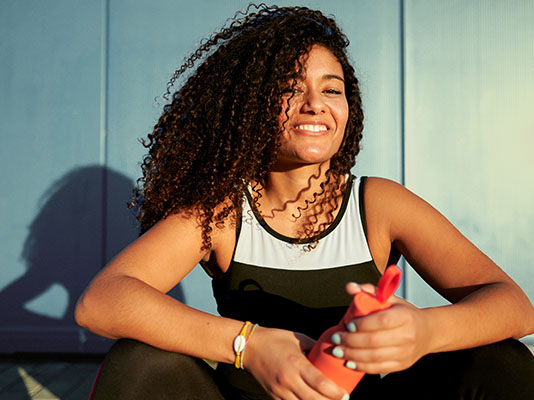About one in three Canadians will get shingles. But timely treatment can lessen symptoms, and a vaccine can help prevent it.
Sunglasses for safety — at any age
How to protect your entire family’s vision with the right sunglasses — and how to spot the best ones for the job.

Wearing poor sunglasses is worse than wearing no sunglasses at all.
That’s the word from the Canadian National Institute for the Blind. The CNIB says sunglasses that don’t protect you adequately from ultraviolet rays will still shade your eyes enough to make your pupils dilate and let in more harmful rays than they would if you were squinting in the sun.
And just as UV rays are dangerous for your skin, they’re also bad for your eyes. “UV rays from the sun can damage your eyes and lead to permanent vision loss,” says Dr. Keith Gordon, vice-president of research at the CNIB.
What can exposure to UV rays cause?
Over the long term, exposure to UV rays increases your risk of developing cataracts and age-related macular degeneration (AMD), the most common cause of vision loss among Canadians over 50. More immediately, you can even sunburn your corneas.
Sun safety tips for parents
Your kids are at risk, as well. Children’s eyes are more susceptible than adults’ to sun damage, says Dr. Gordon, and they tend to be outside more often. For that reason, putting sunglasses on little kids is more than just a cute photo op; it’s long-term protection for their sight. Getting your children to keep them on can be a challenge, however. Look for sunnies with stretchy, adjustable straps. The frames should be bendable and the lenses, unbreakable polycarbonate (not glass), advises the CNIB.
How to tell if your sunglasses are actually protecting your eyes
Look for a tag or sticker that says “100% UV protection” or “UV 400” (which means protection from all types of UV rays), says Robock. Grey, brown, amber or green lenses provide the best protection, according to the CNIB. Lenses should be dark enough to reduce glare without being so dark they distort colours or make it difficult to see traffic signals. Large lenses that shield your eyes from all angles are best — so your outsized Jackie O shades can be smart as well as fashionable! And large lenses will also better protect the thin, sensitive skin around your eyes, as well as your eyes themselves.
Mirrored lenses may look cool, but the CNIB warns that a mirror coating on its own doesn’t protect you from harm — you need UV protection, too. And while polarized lenses are good for reducing glare, they may not necessarily block UV rays. So, mirrored or polarized — look for the UV tag to be sure. Prescription glasses that darken in bright light are UV-protective, but be aware that it takes a while for them to change colour.
“The best line of defence is prevention,” says Dr. Gordon. “Wear quality, UV-protective sunglasses outside year-round — even on cloudy days and even in the winter.”
Regular eye exams — every year, or every other year — can help identify conditions that could make your eyes particularly sun-sensitive. While provincial health insurance no longer covers such exams for most healthy adults, many workplace benefits plans cover eye exams.
- Read more about how to handle heat-related illness


